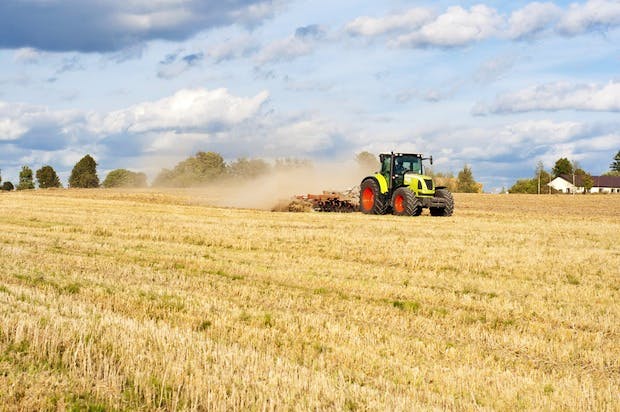I’m off to Balcombe this weekend. In fact I might even carry a placard and paint my face with a clever pun, like ‘F*** off!’ or ‘Go f*** yourself.’ Because it’s time to add my voice in opposition to a greedy industry which threatens your ground-water, exudes greenhouse gases, leaches chemicals into the earth, destroys the beauty of the landscape and imperils our native fauna and flora wherever its grasping hand is felt. This extractive activity fills the air with noxious smells and clogs the roads with slow-moving vehicles; its safety record is appalling, with a high rate of work-related injuries and famously low worker pay. Moreover it has been shown to play havoc with property prices, creating immense wealth for a few owners but few jobs for local communities — despite the billions of pounds it receives from government.
Yep, I’m heading to West Sussex to launch a one-man protest against farming. Because, truly, as a means to generate wealth from land, fracking is a far cleaner alternative.
Compared to the economic value they generate, farmers don’t half need a lot of room. They contribute a meagre 0.6 per cent to UK GDP and employ about 3 per cent of the population, while occupying 80 per cent of the land. Our car industry produces five times as much wealth with about 0.0000003 per cent of the surface area. Farming is ugly, typically requiring sheds full of rusting machinery and a turd-coated concrete yard right next to the kind of Georgian house that would otherwise make an attractive home for an advertising executive.
Ever since it was pioneered by greedy Mesopotamian speculators, the industry has blighted humankind, igniting territorial disputes and large-scale warfare. Until the last century there was at least the justification that it created work. No longer. I am largely descended from farming stock, and should perhaps be more sentimental: yet you may be descended from farriers, thatchers, coopers, fletchers or tanners. Who is subsidising them now?
It’s a wonder we don’t protest more. Perhaps because, for centuries, farming’s wealthy practitioners have employed a battery of PR experts (Virgil, Constable, Gainsborough, Old MacDonald, Chicken Licken) to delude us into thinking their activity natural and wholesome. It is common for young British children to be given toy farms, complete with plastic animals. Yet when I recently went into Hamleys and asked for a Fisher Price Junior Fracking Set they claimed such a thing did not exist.
So here’s my plan to solve the environmental crisis, placate face–painters, restart the construction industry (7 per cent of GDP), and solve pretty much any problem worth mentioning. 1) Reserve 10 per cent of agricultural land for producing enjoyable things foreigners can’t make: high quality lamb, whisky, extra-strong cheddar, proper hops, milk that doesn’t taste like crap. 2) Declare the most beautiful 50 per cent of land off limits to farming and let it return to its natural state as a haven for wildlife, bees, meadowland, tree-huggers and National Trust types. 3) Allow the rest to be used for productive economic activity: roads, shopping malls, airport expansion and large, inexpensive, non-ugly houses with proper gardens (and Tory voters). All new houses should be weatherboarded or wooden, since even architects can’t cock these up much. You can even have a silly fast train if you must.
It is a myth that Britain is overbuilt. We think that because we mostly view it from the road — and roads have buildings alongside them. But I flew to Edinburgh last week and, whenever I looked down, there were farms everywhere. If smelting aluminium took up this much land, we wouldn’t tolerate it for an instant.
Got something to add? Join the discussion and comment below.
Get 10 issues for just $10
Subscribe to The Spectator Australia today for the next 10 magazine issues, plus full online access, for just $10.















Comments
Don't miss out
Join the conversation with other Spectator Australia readers. Subscribe to leave a comment.
SUBSCRIBEAlready a subscriber? Log in